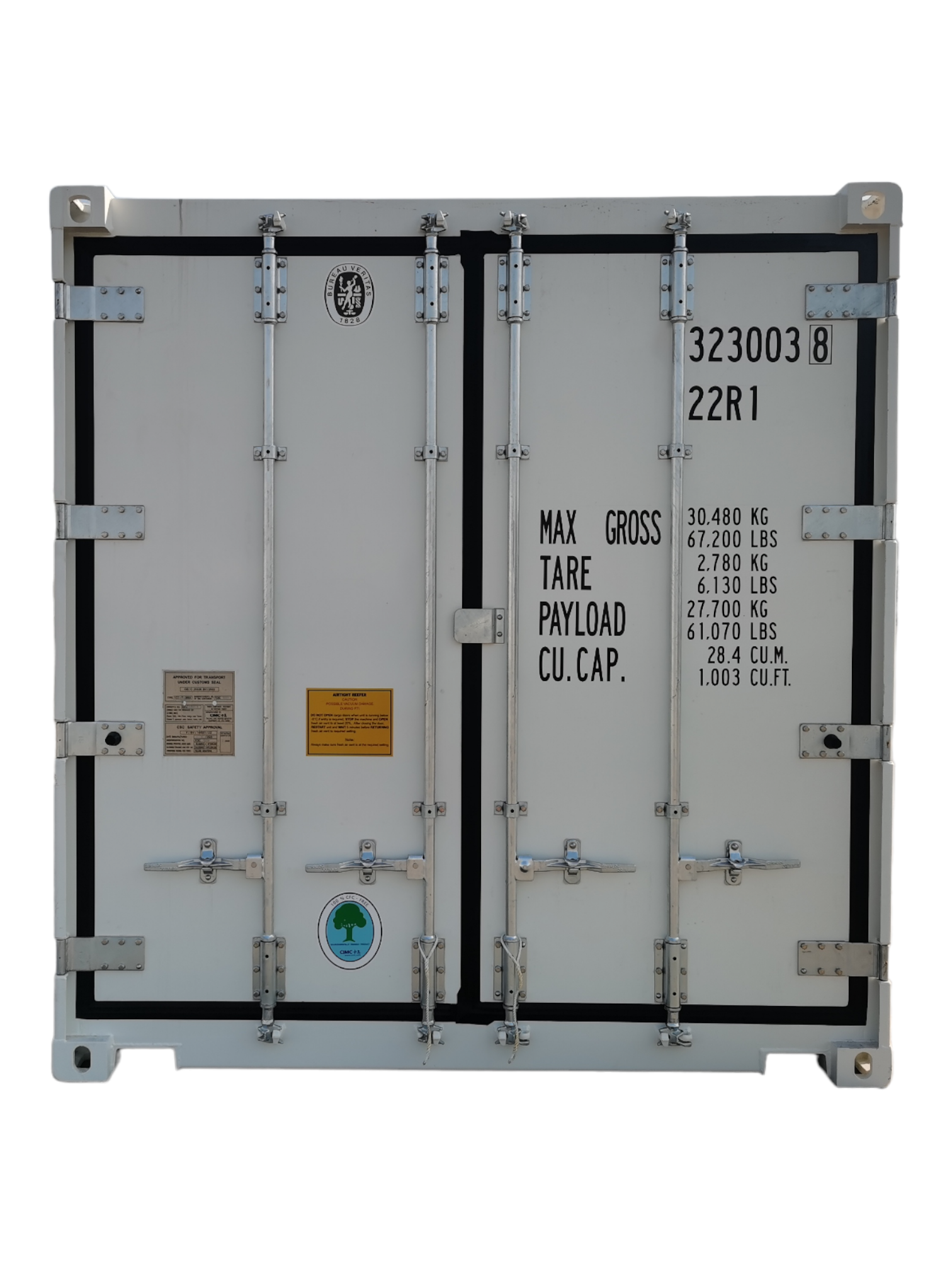Refrigerated containers, beyond the world of maritime transport, are increasingly serving stationary companies from various industries. Contrary to their name, they offer smooth temperature regulation ranging from -60°C to +40°C, as well as the ability to set the humidity % or CO2 content inside. Thanks to this, they are effective all year round, both heating and cooling, or freezing.
Here's a handful of interesting real-life applications:
- Heating bituminous mass before further processing
- Storing a whale
- Cultivating oyster mushrooms
- Storing alcohol at a wedding
- Storing batteries
- Cooling meat
- An insulated workshop with a garage part
Besides the above, practically every sector of the food, pharmaceutical, chemical industry, and many others will find applications for these types of containers.
In case of a malfunctioning unit, such a container acts as an isotherm, which is a thermally protected storage container. It's also a good base for modifications (insulation is already there, which can save a considerable amount), for a workshop container, or even a residential one.
Construction
A reefer differs a bit from "dry" containers. Its walls, roof, floor, and doors are filled with PIR foam, and the interior is finished with acid-resistant steel. The floor is usually aluminum grating - it's worth making sure that, for instance, forklift wheels won't fall into its gaps. If you prefer a flat floor, aim for 45’ containers - it's standard in them. Each corner of the floor also has a drain, which allows drying, for example, after washing.


The front features a unit that requires electricity :) There are several leading manufacturers, from Carrier, Daikin, and Thermo King, found in all older used models, to StarCool in new and several-year-old containers. The difference is that one will be less prone to failure but more expensive to repair, the second can be repaired with used parts, the third over the phone, and the fourth will require service - so it's hard to say which is better; each has pros and cons.
Power Supply
To ensure efficient and safe operation of the unit, the power source should have:
- a 32A protection
- 10kW power
- 380/430V supply
In containers at sea, the original plug is 4-pin, and before stationary use, it is usually replaced with a round 5-pin one.


How to Buy?
Alright, now we know who and what can benefit from reefers, as well as how they're constructed. So, what should we pay attention to when buying?
The most critical issue is the unit's efficiency. Confirmation of its efficiency is a positive PTI (pre-trip inspection) test passage. It's a procedure that every container of this type must undergo before loading and shipment. Confirmation is a sticker on the unit with the date of the test. It's also worth inquiring, especially for used containers, what warranty the seller provides and whether they have a refrigeration service that can assist in case of a malfunction (or simply questions).
Another matter is, of course, external appearance. When buying a used container, expect dings, scratches, or patches - it's normal and does not interfere with its functionality. It's worth checking the rollers on the doors to ensure they're straight and won't hinder opening/closing, as well as inspecting the door seals. Seals play a significant role - their job is to ensure that nothing from outside gets inside:
neither air nor rain. Therefore, sometimes manipulating the doors can be difficult - seals can get vacuum-sealed - but it's a good sign.
And the last point on the list, purely aesthetic - refurbishment. Some offer a choice, some sell only painted containers. Even though such a service slightly increases the price, I personally think it's worth it because sanding can remove corrosion (especially on the corner posts and near the doors) and significantly improve the external appearance. If the container is to serve us for a long time, and also be a visible element of the landscape - all the more reason. More on the entire process in our next blog post.
In the meantime - if we inspect the container and everything is ok, or we have a trusted supplier we trust, we can confidently make the purchase :)
For any questions or clarifications, as well as interest in purchasing a refrigerated container, please contact us. Direct contact with the person responsible for refrigerated containers can be reached by phone at +48 799061967 or via email - katarzyna.jozefowicz@omida.pl
